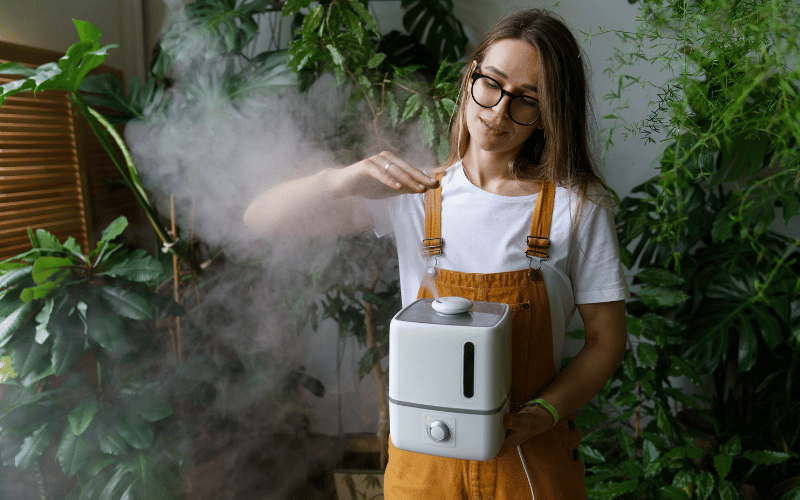Strategy 7: Use a Humidifier

The quality and nature of the air we breathe, especially in our sleeping environment, can influence our snoring. Dry air can irritate the membranes in the nose and throat, leading to increased snoring.
Dry air has a knack for absorbing moisture from wherever it can. When we breathe in such air, it pulls moisture from the throat and nasal tissues, causing them to become dry and irritated. This irritation can cause swelling, leading to a narrowing of the airways and, subsequently, snoring.
By adding moisture to the air, humidifiers combat the dryness. They maintain an optimal level of humidity in the room, ensuring that the air we breathe is less likely to dry out our respiratory tissues. With reduced irritation, the chances of snoring go down.
It’s essential to choose a humidifier that suits one’s needs. There are various types available, from ultrasonic to evaporative. Regular cleaning and maintenance are crucial to prevent mold or bacteria buildup.
A well-humidified room is more than just a snoring remedy. It’s about ensuring optimal air quality for restful sleep. Whether it’s winter dryness or an air-conditioned summer night, a humidifier can be the unsung hero in the quest against snoring. (7)